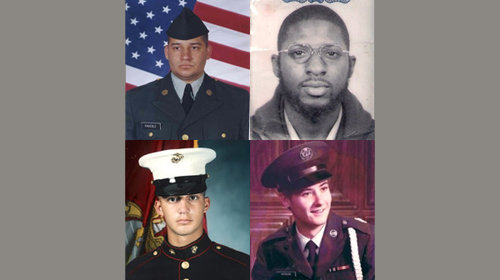
Last week, the Ninth Circuit Court of Appeals unanimously ruled that the ACLU’s lawsuit challenging the U.S. government’s secretive No Fly List should go forward. This decision is a true victory for our clients and all Americans.
More than two years ago, 15 U.S. citizens and permanent residents, including four military veterans, were denied boarding on planes. None of them know why this happened. And no government authority has ever given them an explanation or a fair chance to clear their names.
In June 2010, we filed a lawsuit on their behalf. It challenges both the placement of these Americans on the No Fly List and the government’s failure to afford them a fair redress process after depriving them of their right to travel. We sued the logical government agencies: the FBI and its subagency, the Terrorist Screening Center, which creates and controls the No Fly List. But, in May 2011, the district court in Portland dismissed the case for lack of jurisdiction, ruling that we should have sued the Transportation Security Administration, which administers the (woefully deficient) redress process for travelers denied boarding on planes. We appealed to the Ninth Circuit.
At the hearing, I argued that the district court decision was wrong because TSA doesn’t have the power to put people on, or take them off, the No Fly List—that’s the job of the FBI and TSC. (You can listen to the argument here.) I also argued that placing our clients on the No Fly List without providing them any opportunity to confront and rebut the “evidence” against them is unconstitutional.
As the ACLU previously blogged, the government attorney astonishingly refused to concede that federal courts even possess the authority to remove names from the No Fly List. Taken to its logical conclusion, the government’s position would mean that no court would be able to correct the wrongful placement of American citizens and permanent residents on the No Fly List even if these people got to court by jumping through all of the hoops that the government argued should be put in front of them. According to the government, all a person could do is file a complaint with the existing TSA redress process, and simply hope that some government official would correct a mistake or change her mind. This position is untenable, especially because we know that government watch lists are bloated and include the names of innocent people.
Last week’s Ninth Circuit decision marked a first and important step towards putting a check on the government’s ability to blacklist its citizens without recourse.
The Ninth Circuit reversed the district court and permitted our lawsuit to go forward. It affirmed our position that the government had “concede[d] that TSC decides both whether travelers are placed on the List and whether they stay on it,” and found that it would be “futile” to order TSA to remove the plaintiffs names or give them a chance to clear their names from the No Fly List. It also recognized that the government failed to provide a good answer to a question of tremendous importance to our clients and all Americans:
At oral argument, the government was stymied by what we considered a relatively straightforward question: what should United States citizens and legal permanent residents do if they believe they have been wrongly included on the No-Fly List?
The Ninth Circuit reached the right answer: federal district courts can adjudicate citizens’ and permanent residents’ challenges to their placement on the No Fly List and their demand for a fair redress process.
This decision means that a court will finally consider our clients’ claims that a secret government watch list that denies Americans the ability to fly without giving them an explanation or fair chance to clear their names violates the Constitution. Our clients—and all Americans—are waiting for an answer to that question. We’ll keep you posted.
Learn more about No-Fly List: Sign up for breaking news alerts, follow us on Twitter, and like us on Facebook.
Stay informed
Sign up to be the first to hear about how to take action.
By completing this form, I agree to receive occasional emails per the terms of the ACLU's privacy statement.
By completing this form, I agree to receive occasional emails per the terms of the ACLU's privacy statement.

